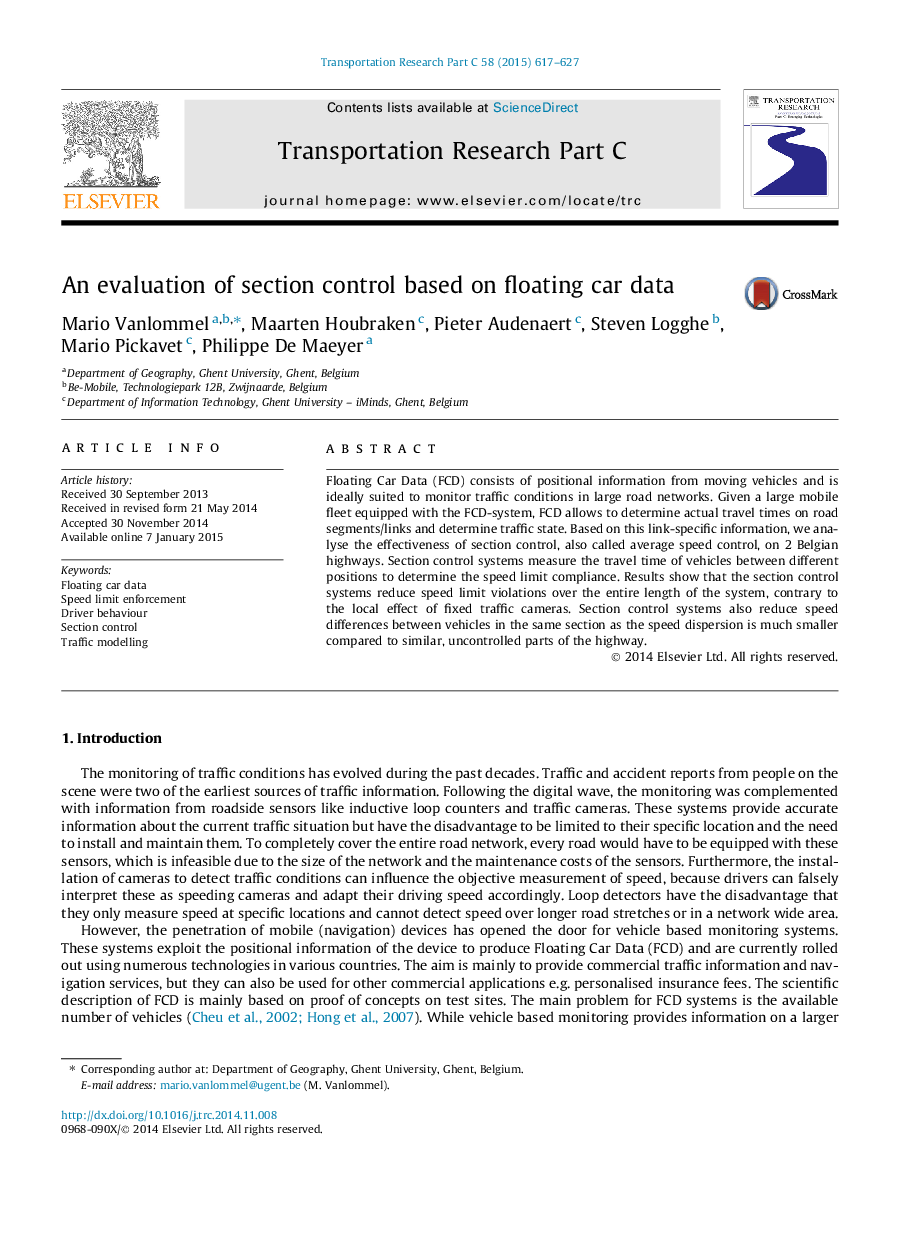| Article ID | Journal | Published Year | Pages | File Type |
|---|---|---|---|---|
| 524943 | Transportation Research Part C: Emerging Technologies | 2015 | 11 Pages |
•We examine the effectiveness of speed limit enforcement based on floating car data.•We compare point and section based speed control systems.•The number of speed violations decreases significantly over the monitored section.•Section control harmonises traffic by decreasing the speed dispersion.
Floating Car Data (FCD) consists of positional information from moving vehicles and is ideally suited to monitor traffic conditions in large road networks. Given a large mobile fleet equipped with the FCD-system, FCD allows to determine actual travel times on road segments/links and determine traffic state. Based on this link-specific information, we analyse the effectiveness of section control, also called average speed control, on 2 Belgian highways. Section control systems measure the travel time of vehicles between different positions to determine the speed limit compliance. Results show that the section control systems reduce speed limit violations over the entire length of the system, contrary to the local effect of fixed traffic cameras. Section control systems also reduce speed differences between vehicles in the same section as the speed dispersion is much smaller compared to similar, uncontrolled parts of the highway.
